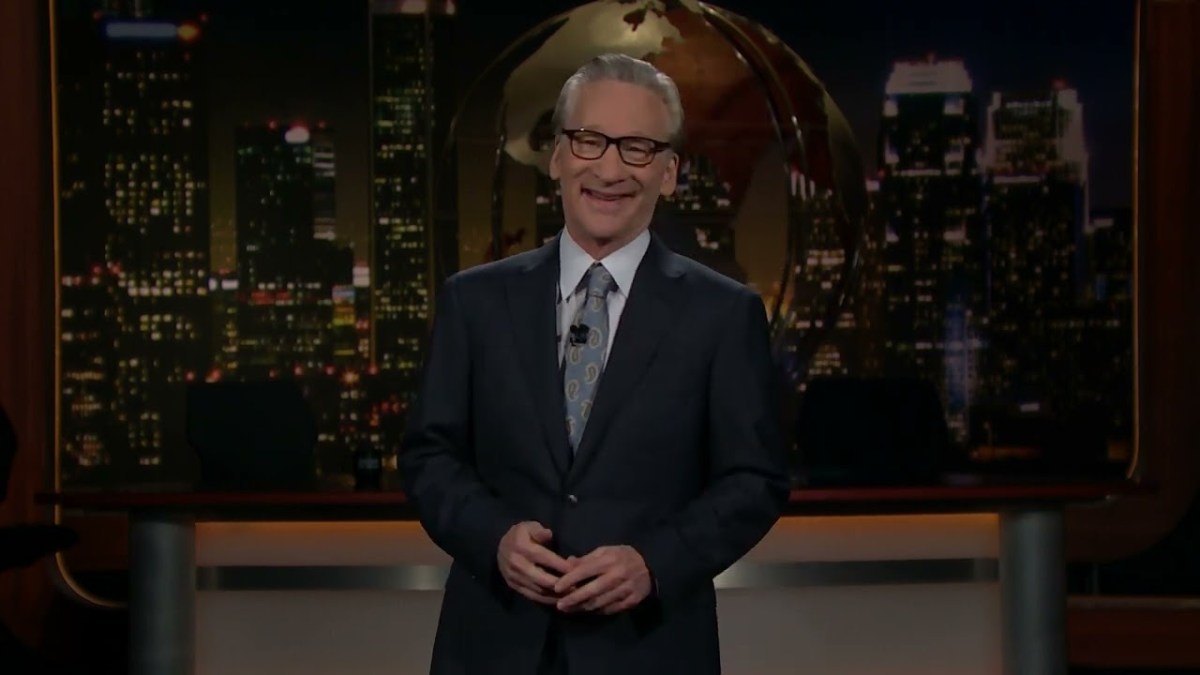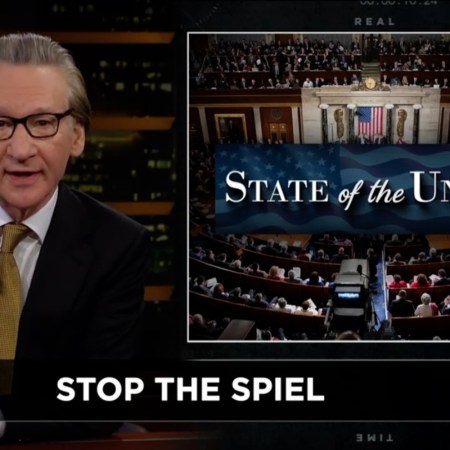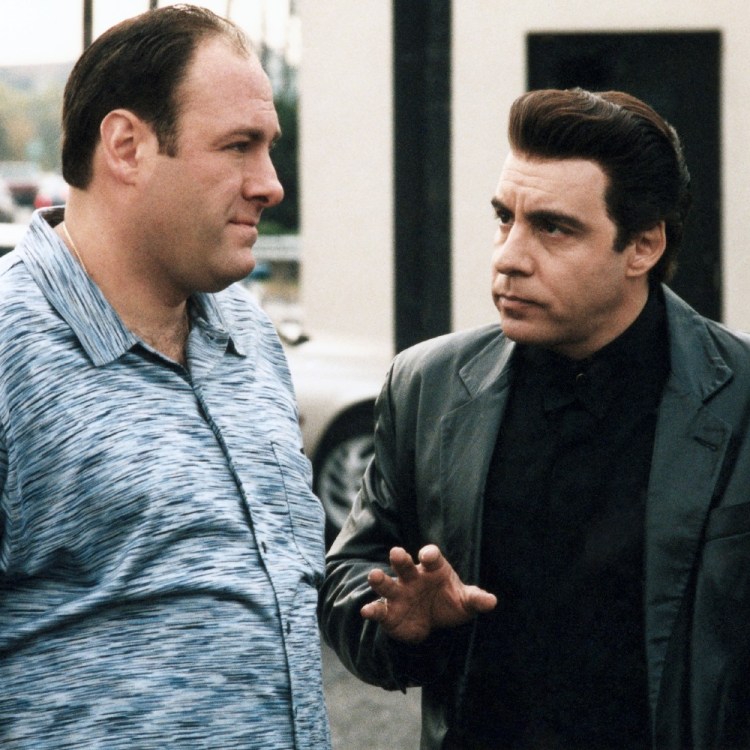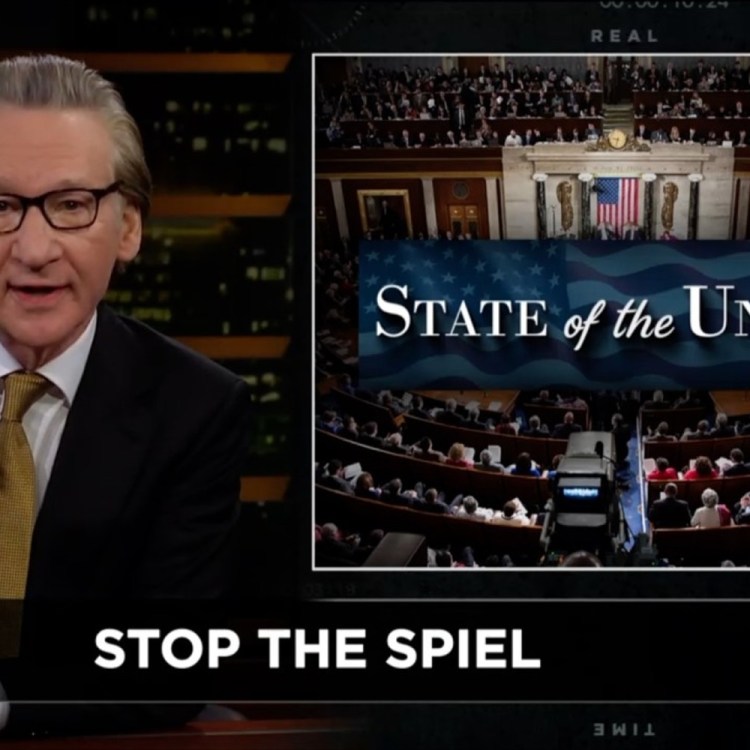These words could be heard a few seconds in to Bill Maher’s opening monologue, though they seem evergreen for, basically, every episode of the year to date. “This country’s so f*cked up,” Maher said — before shifting gears and addressing the controversy that’s developed over a Chinese balloon over Montana.
Maher’s argument was, essentially, that a spy balloon over Montana isn’t all that catastrophic. “Oh my god, now they know where we keep the cows!” he said. Though he also got in a few jabs at the politicians who are suggesting that they shoot it down, and burnishing their macho cred as they do so. It all resolved with a punchline at the expense of Kanye West.
Evidently, Donald Trump has taken to criticizing Maher on Truth Social, and Maher found time to address that, which is to say, to repeatedly mock Trump’s posts — and wrap things up with news about the economy under the Biden presidency.
Recent weeks have brought up questions of policing and violence via the police killing of Tyre Nichols in Memphis. The issues raised by this case were among the subjects that the episode’s first guest, former Minneapolis police chief Medaria Arradondo, discussed. Arradondo began by talking about his own experiences as a Black police officer — but soon both he and Maher were talking about the historical role of the police in the United States, particularly as it relates to race in America.
“Even Black cops can be racist to Black people,” Maher said. “Absolutely,” Arradondo replied.
From there, the discussion turned more broadly to what Maher described as repeated scenes over the years of multiple police beating someone. “It’s extremely frightening, because there’s a mob mentality going on there,” he said. “It’s very Lord of the Flies.” Where, he asked Arradondo, do those actions come from?
Arradondo spoke about a tendency in policing that needed to vanish — specifically, situations where “camaraderie suffocates character.” And he argued that police need to do a better job of being critical of illegal or immoral actions. As Maher observed, this doesn’t seem like the easiest of tasks.
New York Times columnist Bret Stephens and Arizona Representative Ruben Gallego joined Maher for the night’s panel. This episode, Maher segued from one segment into the next, asking his guests if they wanted to comment on anything Arradondo had said. Gallego brought up his time in the Marines and the importance of leadership in keeping individuals from doing harm to others. Stephens, for his part, argued that “99.5%” of police are doing a fine and honorable job — a statistic that Maher had a hard time believing.
Maher’s staked out an interesting position on policing. He has little time for the idea of defunding the police, and he’s certainly not a police abolitionist — but he’s also fond of pointing out that there are a lot of jobs that are significantly more dangerous than being a police officer.
The upcoming State of the Union address prompted some of the more interesting debates of the night. Maher and Stephens are both opposed to it and would like to see it end; Stephens threw in a joke about Will Smith slapping Chris Rock at the Oscars. That discussion of Washington politics led to a more focused line of inquiry: addressing Gallego’s plans to run for the Senate seat currently held by Kyrsten Sinema.
Maher seemed a bit more supportive of Sinema; he’s long been critical of the cost of Build Back Better, an opinion that Stephens shared. Gallego readied a defense of it, pointing out the cost of defense spending. “I couldn’t agree more that that should be cut in half,” Maher replied — which Gallego, in turn, felt was too large of a cut.
This rhetorical give-and-take continued, with Maher and Stephens making the case that several recent Democratic spending bills had been too large and Gallego arguing for their importance. Where did they finally find common ground? It all had to do with a very expensive toilet. The rest of the panel found the three men discussing the pandemic, immigrations and concepts of journalistic integrity. From issue to issue, Stephens and Maher often found themselves on one side of the debate and Gallego on the other.
Near the end of the panel, though, Stephens proposed a political compromise between Republicans and Democrats that involved building a border wall — something neither Maher nor Gallego seemed convinced by.
After jokes about car advertisements and George Santos, Maher focused the bulk of New Rules on, well, the “woke.” Revolutions, Maher observed, tend to go badly for those involved. He spoke specifically of the belief that “you can change reality by screaming at it,” and continued this analogy by comparing today’s “woke” to Maoists during the Cultural Revolution.
The example Maher cited in support of this argument was the case of a University of Illinois-Chicago professor placed on administrative leave after a controversial exam question. Based on the reporting in the American Bar Association’s official publication, the situation sounds a little more complicated than that.
“We have our own Red Guard here, but they do their rampaging on Twitter,” Maher said. Which seems like a pretty big difference, but what do I know? He then quoted lyrics from John Lennon’s “Revolution.” Maher then folded in questions of gender and body type into the mix before bringing the episode to a close. He then directed his viewers to CNN, where Overtime will be airing beginning this week, with the segment airing on YouTube airing the following morning.
This episode opened with Maher critiquing Donald Trump and ended with him criticizing random people on Twitter. It’s hard not to get a sense of imbalance when watching that — and wondering where things go from here.
Thanks for reading InsideHook. Sign up for our daily newsletter and be in the know.


















